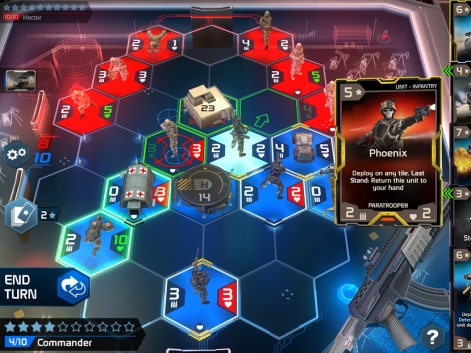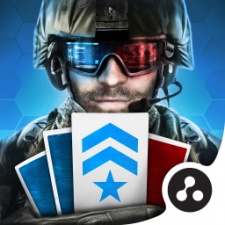When Codemasters opened its mobile-focused Malta studio in 2014, it was a new direction for the Warwickshire-headquartered firm.
Traditionally focused on triple-A console games, particularly in the racing genre, its mobile output consisted of shrunken adaptations of its console IP.
But now, the labours of that Malta studio have borne fruit with the App Store release of Battle Decks, a F2P collectible card game published by Chillingo.
To learn more about the project, and the motivation behind Codemasters' first major foray into mobile gaming, we got in contact with one of those responsible for the game's creation: Scott Rombach, Game Designer at Codemasters Malta.
PocketGamer.biz: The CCG isn't necessarily a genre you associate with Codemasters. How did you get involved with this project?
Scott Rombach: CCGs were on the rise around the time we were opening our Malta Mobile Games studio.
With a huge interest within the team for CCGs and strategy games, it made sense to focus on the team’s strengths and compete in a rapidly expanding market.
Battle Decks switches up traditional CCG mechanics quite a bit. Was it your plan from the outset to shake up a genre that could be accused of stagnating?
If we were going to enter the CCG market, we wanted to make a game that would stand out from the rest. Allowing movement on a board opened the door for greater strategy and depth.
The addition of unit cards represented by 3D models on the board is also a key difference that compliments the innovations in gameplay. This was intended to increase the attachment that players had with their cards and add to immersion in the gameplay experience.
How different an experience is it developing a free-to-play mobile game compared to a triple-A console title?
Development has been refreshing in many ways when compared to traditional AAA console development. The team is smaller and very closely knit, which encouraged smoother communication between the interrelated disciplines.
Development has been refreshing when compared to triple-A.Scott Rombach
Being smaller also allowed the team to be more flexible and adaptable to change when required. Having all the developers feeling very close to the game development is also key, with everyone adding ideas and innovation to development on a daily basis.
This also ensured that everyone in the team felt like they had a voice and weren’t lost into the background, which can happen when developing in large triple-A console teams.
Is your collaboration with Chillingo on Battle Decks the first time you've worked with an external mobile publisher? What were they like to work with, and was it a learning experience?
Yes! While we’ve worked with many publishers in the past this is a first for our mobile games. Working with Chillingo has been a great partnership that we’d like to continue in the future.
Chillingo have felt like an extension to our development team, being a highly knowledgeable team who are as passionate about the game as we are.
Their publishing skills and market reach are critical in getting as many players as possible playing Battle Decks, which at the end of the day is exactly what we are aiming for, as the game is great fun and we all really want it to succeed.
How helpful was the soft launch period, and what changes were made as a result of that insight?
Soft Launch was a great chance to test the game in a live environment with lots of real players and gave us a good insight into player behaviour.

Based on the data we received regularly from game analytics, we were able to make educated changes based around our initial user journey, card balance, data costs and much more.
As a result, players gain a better understanding of the game and will enjoy a more balanced end product.
Does Battle Decks signal a greater push towards new IP on mobile in future?
Our console-based IPs have huge fan bases that look forward to the next instalment of our established games such as DiRT.
When we began creating mobile games, it was a chance to create our own mobile-based IPs that could grow in popularity and create their own fan bases.
We haven’t set a precedent of what games we will make as the mobile games market is so volatile it’s hard to plan that far ahead, but what we will say is that Codemasters will always aim to create fun mobile games that satisfy a particular segment of the market.
Battle Decks is free to download on the App Store.






















